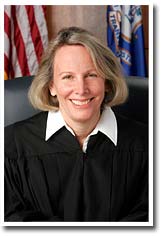 You
know, these days it’s so easy to fall back on
the fast track of the Internet, an information
highway that lets us find everything from
aardvark to zebra with the click of a few keys.
We Google this, we Google that, my goodness,
we’ve coined the word as an everyday verb. And
in many ways, this real-time access has made our
lives easier, especially when we need something
quickly.
You
know, these days it’s so easy to fall back on
the fast track of the Internet, an information
highway that lets us find everything from
aardvark to zebra with the click of a few keys.
We Google this, we Google that, my goodness,
we’ve coined the word as an everyday verb. And
in many ways, this real-time access has made our
lives easier, especially when we need something
quickly.
But
I’m also reminded of the oftentimes impersonal
nature of the Internet. It may be
“user-friendly,” but in the left lane of this
fast-moving freeway, it’s easy to miss the rest
stop, and when we learn, it’s generally from a
distance, without the physical presence of a
human being. Someone once described technology
as “the knack of so arranging the world that we
need not experience it.” So while we all
recognize the importance of words like “cutting
edge” and “21st century know-how,” it’s also
important to maintain a balance between mining
technology for all of its benefits and holding
on to our humanness.
Our
law librarians, thankfully, have found that
balance. On one hand, they are our living,
breathing repositories of facts, cases and
information we need, and they still get excited
when they help us find what we’re looking for.
You not only help us locate the information,
however, you make us want to learn, to pursue,
to keep following the scent. In a nutshell,
these are the folks who light up when they see
the light bulb go on over your head.
On
the other hand, our law librarians have a firm
grasp of how critical technology is to our lives
and the role it plays in enhancing our ability
to learn. These are, after all, the people who
developed the award-winning
Connecticut Judicial Branch Law Libraries’
website. This is an incredibly rich
 resource that has easily accessible information,
many links and the opportunity for users to “Ask
a Librarian.” I don’t know how many of you know
this, but this site was chosen from among 3,500
court websites worldwide for the Justice Served
2006 Web Award.
resource that has easily accessible information,
many links and the opportunity for users to “Ask
a Librarian.” I don’t know how many of you know
this, but this site was chosen from among 3,500
court websites worldwide for the Justice Served
2006 Web Award.
But
again, you can’t have an award-winning website
without dedicated and talented people behind it.
And you certainly don’t beat out thousands of
competitors without knowing or understanding
what your constituencies need and want. Clearly,
our law librarians were award-winners in this
area long before 2006.
And
now, in 2007, we honor our law librarians with
this year’s Law Day Award. It’s even more
meaningful when you consider the theme of this
year’s Law Day ceremonies: Empowering Youth,
Assuring Democracy.
I
can think of no better way to empower youth than
to provide them the opportunity to learn, to
question, to get excited about going to bed
smarter than they were when they got up in the
morning. I can think of no better way to empower
youth than to provide them with newspapers and
magazines and news of our times, so that they
can understand their government and the dynamics
of our complicated world; so that they may learn
from the successes and mistakes of the
generations before them. I can think of no
better way to empower youth than to teach them
the value of reading a good book as well as the
range of skills required to research not only
what, where and when, but why and how. Finally,
I can think of no better way to empower our
youth than by providing them the arena to learn
about a subject area so near and dear to our own
hearts – our courts. If, as someone once said,
libraries are the custodians of civilization,
then I would submit to you that our law
libraries are the custodians of our halls of
justice. If, as someone else once said, a great
library contains the diary of the human race,
then I submit to you that our law libraries
contain the diary of our common law, our case
law, and all of the humanity, wisdom and
democracy that our courts represent.
Who
makes all of this happen? Our law librarians,
who have one finger on the pulse of a keyboard
and another on the pulse of how human beings
assist, encourage and educate others to learn
and push ahead. An editorial in the Denver Post
several years ago put it this way: “Librarians
are very special people. They are the caregivers
of the world of the mind, the nurturers of
dreams and the defenders of truth. Perhaps no
other profession is so marked by the singular
generosity of its practitioners.”
On
behalf of the entire Judicial Branch, I couldn’t
agree more. We are indeed fortunate that you
have chosen to devote yourselves to the law
libraries of the Judicial Branch, and most
important, to the members of the public they
serve. Thank you and congratulations.



